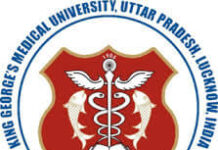Abstract
In the rapidly evolving landscape of medical research and education, the role of professional medical writers is increasingly being recognized. These professionals convey complicated medical knowledge obtained from medical research, clinical trials, and scientific publications to their peers. Maintaining scientific rigor and making sure that their work is understandable by the target audience are two competing priorities for medical writers. By following ethical norms, they may contribute to the improvement of medical practices and knowledge while upholding the scientific community’s confidence in their abilities for the betterment of healthcare and reliable evidence. The present paper discusses the role of professional medical writers and its related factors in healthcare.
Keywords: Authorship, Communication, Evidence-based research, Healthcare, Medical writer, Plagiarism
Conflict of Interest: None declared
Source of Support: None declared
Introduction
Medical authors communicate research findings, clinical practice, or viewpoints to their colleagues by publishing them in medical journals. Medical professionals mainly busy clinicians, publish their findings sparingly.[1] In the rapidly evolving landscape of medical research and education, the role of professional medical writers has become increasingly recognized. Professional medical writers are those who follow the ethical standards for medical writing. These skilled individuals play a vital role in the dissemination of evidence-based research findings by medical researchers to the wider scientific community, ensuring that valuable research findings reach the public and contribute to advancements in healthcare.[2] Professional Medical Writers help authors incorporate the four Cs (content to be concise, comprehensible, clear, and coherent) for effective communication. Professional medical writers are legitimate contributors to the article as opposed to ghostwriters.[3] This article clarifies the role of professional medical writers in modern medicine, with a focus on their ethical involvement in medical academia.
The Purpose and Demand for a Professional Medical Writer
Over time, there has been a tremendous expansion in the range of professional medical writers. The demand for professional medical writers who can convey complicated medical knowledge has significantly increased due to an increase in medical research, clinical trials, and scientific publications. Research articles, review papers, conference abstracts, grant applications, regulatory documents, and medical textbooks are just a few of the varied materials that medical writers contribute to. In the modern era, when the distribution of accurate and evidence-based medical information is of the utmost significance, medical writers play a crucial role in making sure that study findings are properly conveyed to both medical professionals and the general public. Additionally, they help medical professors and researchers who are sometimes too preoccupied with managing their patients and other administrative duties understand the difficulties of publishing in peer-reviewed journals, increasing the exposure and effect of their work. Promotion of medical professors is also contingent on producing high-caliber scholarly publications. A key criterion for assessing the academic and research accomplishments of medical faculty is publication in indexed peer-reviewed publications.[4] Institutions and regulatory organizations use academic publication volume and quality as a measure of a medical teacher’s knowledge base, ability to disseminate information, and contribution to the field. Academic papers also improve medical knowledge by enabling active engagement in the world’s scientific community and by promoting the use of evidence-based medicine globally.[5]
1Senior Resident, Department of Community Medicine, B.R.D.Medical College, Gorakhpur, Uttar Pradesh, India;
Corresponding Author: Dr. Imran Ahmed Khan, Senior Resident, Department of Community Medicine, B.R.D.Medical College, Gorakhpur,
Uttar Pradesh, India. 273013; Email id: ikhan0046@gmail.com
Credentials of a Medical Writer
Familiarity with medical concepts and terminology is a must for becoming a medical writer. A background qualification in one of the life sciences of medical or paramedical streams, such as pharmacy, biochemistry, biotechnology, etc., can produce the writer with these basic attributes. Another important virtue is the ability to communicate scientific information to the target audience. It needs command over the language as reflected by an ability to write grammatically correct text, and an ability to express and present information clearly and succinctly.[6] There isn’t a strict requirement for a specific degree in medical writing. Attending scientific writing workshops, joining online training programs, and memberships of related organizations like the American Medical Writers Association (AMWA), and European Medical Writers Association (EMWA) etc. may further add value.[7]
Responsibility and the Role of Professional Medical Writers
While the participation of medical writers has expanded, some of the key roles of professional medical writers need particular attention. Maintaining scientific rigor and making sure that their work is understandable by the target audience, planning the article flow, summarizing key points, and formatting according to journal styles are some priorities for medical writers. Checking source data, obtaining approvals from the Ethical Committee, consent from participants, the conduct of studies, authenticity of data, and conflict of interest and funding sources are to be taken care of by the researchers. With new developments and discoveries, the medical world is always changing its pace. To provide accurate and current information, medical writers must remain up-to-date on the most recent findings and recommendations from the medical community. [8,9] Professional medical writers are required to adhere to ethical norms to protect the reputation of the scientific community and assure the reliability of the material they publish. One of the important ethical dilemmas in medical writing is authorship. Although medical writers may make a significant contribution to the creation of research articles, they should not be included as authors unless they have made significant intellectual contributions that fulfill the standards outlined by international conventions (e.g., International Committee of Medical Journal Editors, ICMJE). However, their contributions should be acknowledged appropriately in the research paper. [10]
In medical writing, plagiarism is unethical and may have grave consequences. All of the sources that medical writers utilize must be properly cited, giving the original authors due credit. It is unacceptable to copy or paraphrase without the proper reference, as this spoils the document’s credibility as a whole. Medical writers should never fabricate or manipulate data to make study findings appear more favorable. Data falsification misleads the scientific community and can also have severe consequences for patient care and public health. There’s an old saying that goes, “If you want to be trusted, be honest.” As the use of Artificial Intelligence, especially ChatGPT increases, it’s ethical use should be ensured and acknowledged accordingly.[11] When writing a medical article, medical writers could have access to private and sensitive information about participants and institutes. Protecting the privacy of study participants, researchers and institutions and upholding absolute secrecy is their moral obligation. When medical writers are involved in creating articles based on clinical trials or research involving human subjects, they should make sure that all participants provided the necessary informed consent and that the study was carried out by ethical standards. To stay current on best practices, ethical standards, and the most recent advancements in medical research, medical writers should engage in ongoing professional development and training.
Professional Medical Writers in the Present Era
Medical writers in the present era face various challenges that impact their communication of scientific information. The increasing volume of scientific literature poses difficulties in staying updated on the latest research and guidelines, while the inherent nature of medical information mandates balancing of simplification without compromising accuracy. Various regulatory requirements, multidisciplinary collaborations, and the pressure to publish within deadlines further contribute to the complexity of their roles. Adapting to rapidly changing technological advances, maintaining ethical considerations, and considering global perspectives add further to the complexity. Additionally, with the emergence of new fields and therapies, medical writers must continually educate themselves to stay updated. Moreover, there is a growing emphasis on patient-centric communication, requiring the presentation of complex scientific concepts into accessible materials for a broader audience. Free availability and use of artificial intelligence tools like ChatGPT may affect their job opportunities.[12,13] Addressing these challenges demands ongoing professional development, collaboration, and a commitment to maintaining high standards in scientific communication within the dynamic landscape of medicine.
Conclusion
In conclusion, the involvement of professional medical writers is becoming increasingly apparent in the current era of medical research and education. These professional medical writers support medical educators as they negotiate the complex world of academic publication by sharing scientific discoveries with the medical community and the general public. The field of medicine, including medical writing, heavily relies on ethical issues. Ethical behavior is becoming more important as there is a growing need for accurate and trustworthy medical information. Medical writers must be aware of these ethical issues and uphold the highest standards of accountability, honesty, and transparency. By doing this, they may contribute to the improvement of medical practices and knowledge while upholding the scientific community’s confidence in their abilities for the betterment of healthcare and reliable evidence. Continuous adaptation of newly evolving technologies and learning new skills is of paramount importance for their survival.
References
- Camacho LH, Bacik J, Cheung A, Spriggs DR. Presentation and subsequent publication rates of phase I oncology clinical trials. Cancer. 2005 Oct 1;104(7):1497-504.
- Jacobs A, Wager E. European Medical Writers Association (EMWA) guidelines on the role of medical writers in developing peer-reviewed publications. Current medical research and opinion. 2005 Feb 1;21(2):317-21.
- Woolley KL. Goodbye ghostwriters: How to work ethically and efficiently with professional medical writers. Chest. 2006 Sep 1;130(3):921-3.
- Pandya H, Chacko T, Mohammed CA. Regulatory system to promote the culture of quality at Indian medical schools: Are we doing enough?. National Medical Journal of India. 2021 Sep 1;34(5).
- Celik S. Characteristics and competencies for teacher educators: Addressing the need for improved professional standards in Turkey. Australian Journal of Teacher Education (Online). 2011 Jan;36(4):18-32.
- Sharma S. How to become a competent medical writer?. Perspectives in clinical research. 2010 Jan;1(1):33.
- Harris D, Tyrrell C, Myers A, Carr C, Fink K. Value of medical writing: The regulatory writer’s perspective. AMWA Journal. 2021 Dec 17;36(4).
- Bhargava A, Pandita A, Tambe M, Kadam A. Challenges and Opportunities in Medical Writing: A Review. Perspect Clin Res. 2019;10(4):153-159.
- Daskalopoulou SS, Mikhailidis DP. The involvement of professional medical writers in medical publications. Current medical research and opinion. 2005 Feb 1;21(2):307-9.
- Das N, Das S. Hiring a professional medical writer: is it equivalent to ghostwriting?. Biochemia Medica. 2014 Feb 15;24(1):19-24.
- Baumgartner C. The potential impact of ChatGPT in clinical and translational medicine. Clinical and translational medicine. 2023 Mar;13(3).
- Khan IA, Paliwal NW. ChatGPT and Digital Inequality: A Rising Concern. Sch J App Med Sci. 2023 Sep;9:1646-7.
- Ahmed Khan I. The impact of ChatGPT on Healthcare Professionals: Addressing Job Security Concerns. Epidemiol Public Health. 2023; 1(2): 1012.























